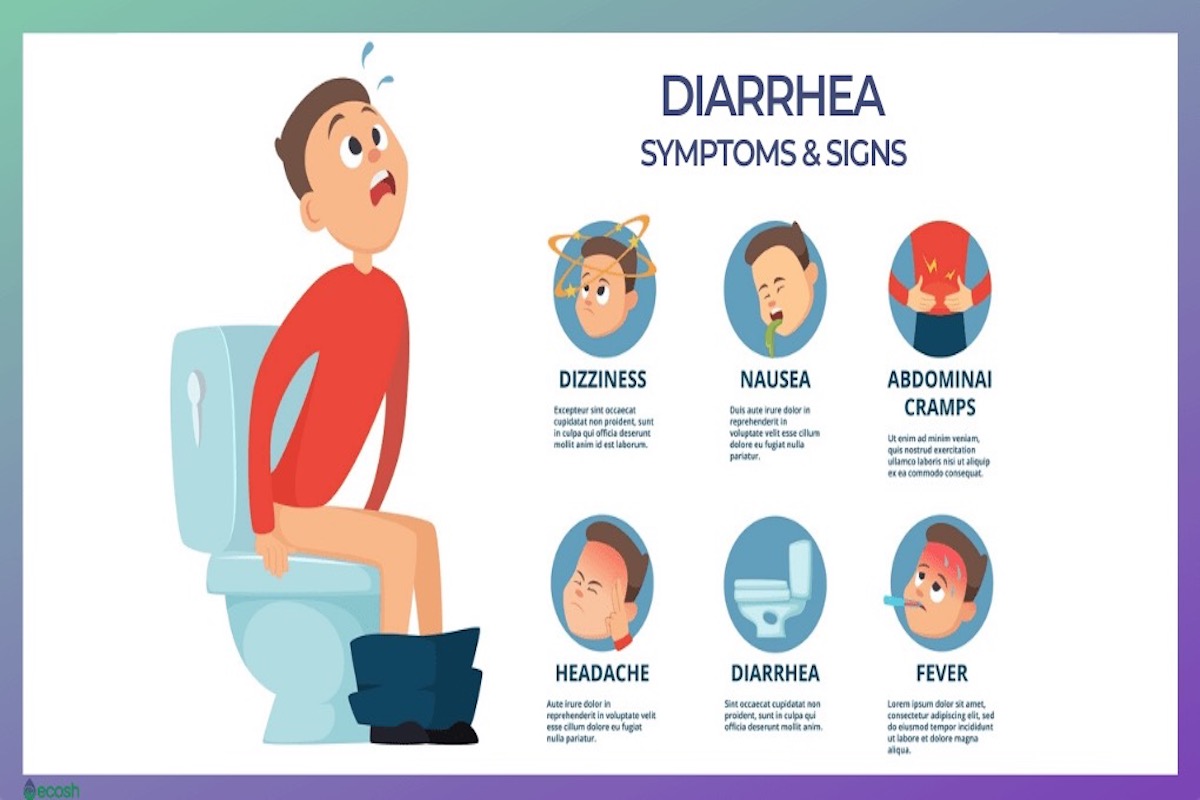Complications can arise from diarrhea, but it’s important to note that most cases of diarrhea do not result in death. However, severe and prolonged loose stools can lead to dangerous complications, especially if not properly treated. One of the primary risks is dehydration, where the body loses too much water and essential electrolytes. Dehydration can be particularly dangerous for young children, older adults, and those with weakened immune systems. Additionally, if the underlying cause of loose stools is an infection, there is a risk of spreading the infection to others. In rare cases, certain types of severe diarrhea, such as that caused by certain bacteria or toxins, can be life-threatening if left untreated.

More information about Dehydration? Read our blog: This Is What You Need to Know About Dehydration
Symptoms of Diarrhea
Diarrhea can present with various symptoms, but the two most common symptoms are Frequent trips to the bathroom and loose/watery stools. Diarrhea often causes a notable increase in the frequency of trips to the bathroom to poop. Instead of the usual once or twice a day, a person may experience several episodes of bowel movements in a single day. The consistency of the stool changes during diarrhea, becoming loose and watery. The stool may lack form and appear more liquid-like than usual.
Other symptoms of diarrhea may include:
- Stomach cramps or pain: You may feel discomfort or cramps in your tummy.
- Urgent feeling: You might feel a strong and sudden need to go to the bathroom right away.
- Nausea: Some people with diarrhea feel sick to their stomach or like they want to throw up.
- Bloating: Your tummy may feel swollen or bigger than usual.
- Fever: Sometimes, having diarrhea can come with a higher body temperature.
- Tiredness: If you have diarrhea for a long time, or it’s severe, it can make you feel weak and tired.
- Dehydration: Diarrhea can make you lose a lot of fluids from your body, which can make you thirsty, have a dry mouth, pee less, or feel dizzy.
It’s important to note that the severity and duration of symptoms can vary depending on the underlying cause of diarrhea.
Are There Any Treatment Options?
Diarrhea is a very uncomfortable problem. Fortunately, there are treatment options to speed up the process of getting better. The most important ones are to stay hydrated and eat bland foods, like bananas, rice, applesauce, and toast. These foods can help firm up the stool and provide some nourishment. Other remedies are:
- Avoid certain foods, like spicy, greasy, or high-fiber foods.
- Rest and take it easy
- Over-the-counter medications, like loperamide
- Address the underlying cause and treat this
Remember, it’s important to seek medical attention if diarrhea is accompanied by severe symptoms, lasts for an extended period, or if you have concerns about dehydration or other complications.
Prevention Tips for Diarrhea
There are preventive measures you can take to reduce the risk of getting diarrhea. Some simple tips are:
- Wash your hands regularly
- Practice good food hygiene, like making sure that food is cooked thoroughly and washing fruits and vegetables
- Drink clean water
- Be cautious when traveling
- Practice proper food storage
- Maintain personal hygiene, like don’t share personal items such as towels, utensils, and cups
- Vaccinations (when recommended)
We know, it can be a challenging problem to deal with, but there are solutions available. Identifying the cause and seeking the right treatment for your situation is important. We hope this article has provided helpful information on how to deal with diarrhea. For more info on this topic, or other tummy problems start your search here:

